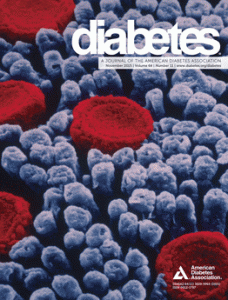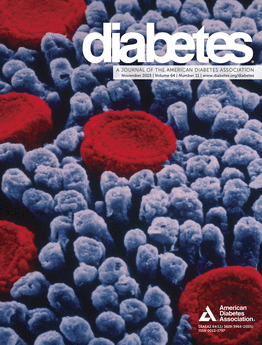Researchers examining the effects of hypoglycemia on cardiovascular autonomic control, which influences heart function, found that there was clear cardiovascular stress.

Past studies have shown an association between strict control of blood sugar and increased mortality. These studies have also suggested that a consequence of this strict control is low blood sugar (called hypoglycemia), which may have adverse effects on the heart.
In a new study, published by the journal Diabetes, researchers examined the effects of hypoglycemia on cardiovascular autonomic control – one system that influences the heart’s function. They found that in their experimental model of hypoglycemia, there was a clear change in the body’s responses to cardiovascular stress.
“These findings suggest a specific way as to how the cardiovascular system is compromised during episodes of hypoglycemia,” says Ajay D. Rao, MD, Assistant Professor of Medicine in the Section of Endocrinology, Diabetes, and Metabolism at the Lewis Katz School of Medicine at Temple University, and first author of the paper.
Hypoglycemia occurs when the level of sugar (glucose) in the blood is too low. Hypoglycemia occurs most often in diabetics who must inject insulin periodically to lower their blood sugar. It also may occur in patients taking pills for diabetes that cause the body to make more insulin.
Continue Reading Below ↓↓↓
During the study, healthy volunteers were exposed to experimental hypoglycemia. The volunteers were subjected to specialized testing of the cardiovascular system before and at the end of the experimental hypoglycemia period. Dr. Rao and his colleagues were able to show that during hypoglycemia, there was a clear derangement in the body’s response to changes in blood pressure and heart rate.
Other researchers contributing to the work include corresponding author Roy Freeman, Istvan Bonyhay and Sarah Ballatori from the Department of Neurology at the Beth Israel Deaconess Medical Center and Harvard Medical School in Boston, MA; and Joel Dankwa, Maria Baimas-George, Lindsay Kneen and Gail K. Adler from the Division of Endocrinology, Diabetes and Hypertension in the Department of Medicine at Brigham and Women’s Hospital and Harvard Medical School in Boston, MA.
This research was supported by grants from the National Institutes of Health (T32HL007609, K24HL103845 and RO1HL109634) and the Richard Laylord Evans and Dorothy L. Evans Foundation (Temple University Department of Medicine Faculty Development Research Award). Research support was also provided by the Robert Wood Johnson Foundation.
More about the findings can be read in Diabetes here: Baroreflex Sensitivity Impairment During Hypoglycemia – Implications for Cardiovascular Control
Source: Temple University Health System
Journal: Diabetes










